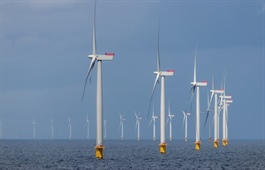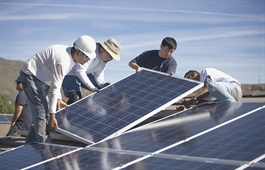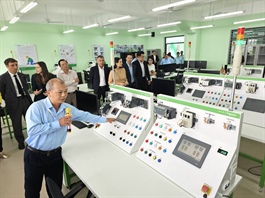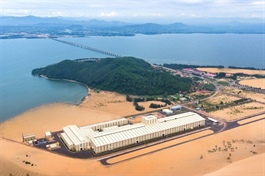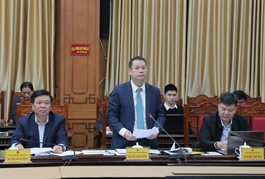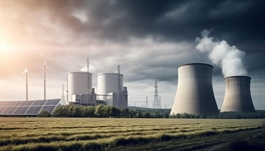Vietnam revives Ninh Thuan nuclear power project
Vietnam revives Ninh Thuan nuclear power project
Vietnam has officially revived the Ninh Thuan nuclear power project, which comprises two plants located in Phuoc Hai and Vinh Hai commune
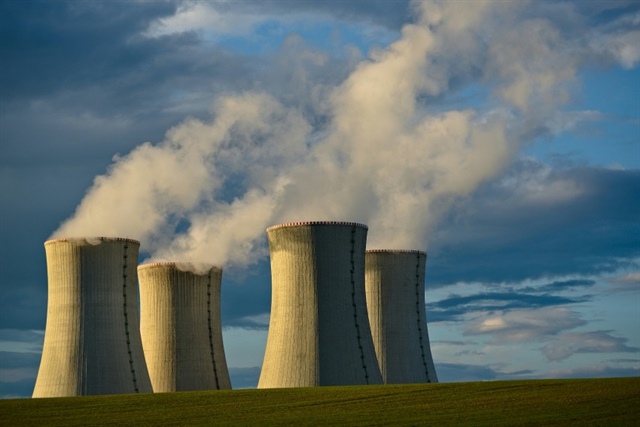
Vietnam revives Ninh Thuan nuclear power project with special policy framework. Source: Unsplash |
The first plant is slated to begin operations by 2030, with a final deadline set for late 2031 to ensure stable economic and social development.
On February 19, with more than 96 per cent of National Assembly (NA) members in favour, a resolution was passed granting a series of special policies to facilitate the construction of the Ninh Thuan nuclear power plants. Under this resolution, the prime minister is authorised to appoint the project’s investor and adopt an engineering, procurement, and construction (EPC) contract awarding mechanism.
The government is permitted to directly award EPC contracts to international contractors under bilateral agreements. These contracts will encompass site approval, investment planning, plant design, procurement of nuclear technology and equipment, construction, and insurance arrangements with foreign enterprises. Additionally, provisions are in place for nuclear fuel supply, as well as plant operation and maintenance for five years following project completion.
To expedite the preparatory phase, a streamlined selection process will apply to consultancy packages covering pre-feasibility studies, site approval reports, feasibility studies, and investor advisory services for negotiating, signing, and managing EPC contracts. The same process will be used for technology assessments, safety and security evaluations, and early-stage investment planning.
Crucially, international treaty negotiations and EPC contract finalisation will proceed concurrently with pre-feasibility studies, mine clearance, infrastructure development for power and water supply, and environmental monitoring.
The NA has mandated that all technical standards and regulatory frameworks proposed by international partners must comply with guidelines from the International Atomic Energy Agency (IAEA) and meet or exceed Vietnamese safety and regulatory standards.
Investors in the Ninh Thuan venture will not be required to submit project content, financing plans, or loan collateral approvals to the state ownership representative body. Instead, the government is empowered to negotiate funding with foreign governments and financial institutions based on demand and donor commitments. Project developers may also secure counterpart financing through loans and bond issuances.
They will be eligible for preferential credit terms, including exemptions from credit risk assessments and feasibility study submissions for projects utilising official development assistance (ODA) or concessional loans. The prime minister will oversee the allocation of additional revenues and budget savings to the venture.
Banks are permitted to exceed standard lending limits for counterpart funding, and such loans will not be included in the investor’s total credit exposure, ensuring that financing for other projects remains unaffected. Additionally, project-related loans and bonds will not count towards debt-to-equity ratios, preventing any negative impact on broader capital-raising efforts.
The prime minister has the authority to approve capital increases for project investors, drawing from asset revaluations of multipurpose hydropower plants and build-operate-transfer (BOT) projects.
To facilitate land acquisition, the NA has waived requirements for forestland repurposing approvals while urging the minimisation of natural forest conversions. Notably, the final resolution omits explicit references to Vietnam Electricity (EVN) and PetroVietnam as project investors, differing from earlier drafts. The decision on investor appointment now falls under the prime minister’s jurisdiction.
During a press briefing on February 17, a representative from the NA’s Committee on Science, Technology, and Environment clarified that the resolution establishes an overarching policy framework without specifying implementing enterprises. Investment decisions for the Ninh Thuan project have not yet been revised and are expected to be considered in the May 2025 legislative session. Until then, no formal investor appointments will be made.
PetroVietnam chairman Nguyen Manh Hung had advocated for explicitly naming EVN and PetroVietnam as project developers, arguing that a clear designation was necessary given the initiative’s scale and complexity.
He emphasised, “Without predefined investors, securing necessary approvals and executing preparatory work would be significantly hindered.”
Given the venture’s strategic importance, the NA has approved a special fiscal arrangement for Ninh Thuan province. The central government will allocate up to 70 per cent of incremental tax revenues generated by the project to the province annually. However, this will be capped to ensure that central government revenues do not decline. Ninh Thuan is also authorised to access ODA and concessional foreign loans, with a debt ceiling set at 90 per cent of its locally retained revenues. Annual borrowing and budget deficit limits will be subject to NA approval.
Additionally, the province will benefit from special licensing arrangements for extracting construction materials for the nuclear project. Compensation and resettlement policies will be set at the highest permissible levels, with affected residents receiving compensation at 1.5 times the standard rate.
Those without official land-use certificates but meeting legal requirements will also be eligible for compensation. Resettlement efforts will be conducted simultaneously with investment adjustments for relocation infrastructure, streamlining administrative processes. The province will also be exempt from modifying mineral reserve and exploitation plans in cases of resource overlap.
A dedicated government task force will oversee implementation to ensure transparency and efficiency.
To enhance fiscal oversight, the engineering, procurement, and construction contract will be subject to a mandatory audit by the State Audit Office of Vietnam, which must deliver its findings within 30 days before contract signing. Additionally, contractors will be required to prioritise the use of domestically produced materials, equipment, and services. International procurement contracts must include provisions for technology transfer and workforce training to support Vietnam’s long-term ambitions in nuclear energy development.
In cases where investment policies require adjustments outside regular NA sessions–excluding total investment cap revisions–the NA Standing Committee is authorised to make interim decisions.
Vietnam aims to achieve economic growth exceeding 8 per cent this year, with a double-digit target from 2026 onward. This translates into an annual electricity demand increase of 12-14 per cent. Nuclear energy, as a clean and stable power source, will play a crucial role in diversifying Vietnam’s energy mix, ensuring energy security, and meeting the nation’s commitment to carbon neutrality by 2050 under the COP26 agreement.
- 14:00 19/02/2025



